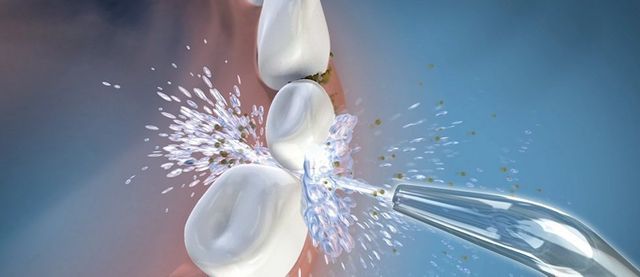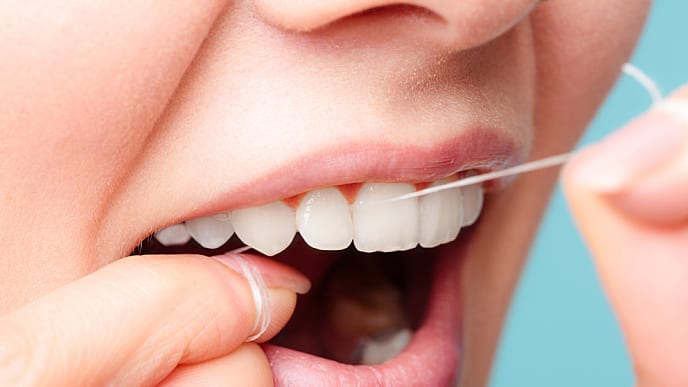Flossing Options: Traditional Flossing vs. Water Flossing
Maintaining good oral hygiene is key to preventing cavities, gum disease, and other dental problems that can impact not only your smile but your overall health. While brushing is an essential part of daily dental care, it’s not enough on its own. Flossing plays a critical role in removing plaque and food debris from areas your toothbrush simply cannot reach — specifically the tight spaces between your teeth and just below the gumline.
However, with so many flossing options available on the market, including the traditional string floss and modern water flossers, many people are left wondering: which flossing method is best? This question is common, and the answer often depends on individual preferences, dental needs, and lifestyle.
In this post, we’ll compare traditional flossing with water flossing, explore the benefits and limitations of each, and provide tips to help you find the flossing routine that works best for you.
Traditional Flossing: The Classic Approach
Traditional string floss has been the gold standard for decades. It involves using a thin strand to slide between your teeth and scrape away plaque and debris.
Benefits of Traditional Flossing
-
Effective Plaque Removal: According to the Centers for Disease Control and Prevention (CDC), flossing is essential for removing plaque between teeth and along the gumline, where a toothbrush can’t reach.
-
Prevents Gum Disease: Flossing reduces the risk of gum inflammation and periodontal disease by disrupting bacterial buildup.
-
Affordable and Accessible: Traditional floss is inexpensive and widely available.
-
Precision and Control: Offers tactile feedback, allowing you to clean with more control and accuracy.
Considerations
-
Can be difficult to use for people with limited dexterity or orthodontics.
-
May cause discomfort if not used properly, especially for those with sensitive gums.
-
Requires consistent technique to avoid gum damage.
Water Flossing: The Modern Alternative
Water flossers, also called oral irrigators, use a pressurized stream of water to clean between teeth and under the gumline.

Benefits of Water Flossers
-
Easy to Use: According to WebMD, water flossers are ideal for people with braces, implants, or arthritis, as they simplify the flossing process.
-
Gentle on Gums: Less likely to cause bleeding or irritation, making them ideal for those with gum sensitivity.
-
Promotes Gum Health: A Harvard Health Publishing article notes that water flossers may be more effective in reducing gingival bleeding and inflammation, especially in patients with gum disease.
-
Boosts Consistency: Many users find water flossers more enjoyable to use, which encourages regular daily flossing.
Considerations
-
Typically more expensive than string floss.
-
Requires access to water and electricity.
-
Can take up more space on the bathroom counter.
-
Lacks tactile feedback, which can make it less precise in hard-to-reach areas.
What Does the Research Say?
Research suggests that both traditional floss and water flossers are effective, but water flossers may offer a slight edge in certain scenarios. The 2021 clinical study compared both methods and concluded that while both significantly reduce plaque and gingival inflammation, water flossers were particularly effective in reducing bleeding and improving gum health within a short-term evaluation period.
That said, technique and consistency matter more than the tool itself. If you’re using either method regularly and correctly, you’re doing your smile a favor.
Tips for Effective Flossing, No Matter the Method
-
Floss at least once a day.
-
Be gentle—avoid snapping floss into the gums.
-
Follow the shape of your gum line for complete coverage.
-
If using a water flosser, start on a low setting and work your way up.
-
Always pair flossing with twice-daily brushing and regular dental checkups.
For detailed brushing and flossing tips, visit the CDC’s Oral Health Basics.
Ready to Improve Your Oral Health Routine?
At Emergency Dental of Columbus, we help you find the best tools and techniques to keep your smile healthy. Whether you prefer string floss or a water flosser, maintaining a consistent daily routine is the most important step.
Want more dental care tips? Explore our blog page for expert-backed advice. Need urgent care or a dental checkup? Book an appointment with us today—we’re here when you need us.

